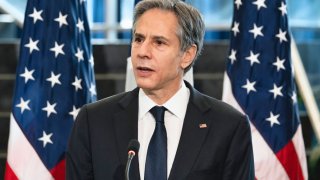Rethinking U.S. Middle East Policy
For now, direct confrontation between Israel and Iran has been defused. Yet, while efforts by both sides were calibrated to minimize potential fallout, much of the credit for de-escalation is owed to international intercession and good luck.
The United States and Israel also need to rethink their strategy of creating a U.S.–Arab–Israeli alliance to “contain” Iran. U.S.-Arab partners have shown over the past year that they value relations with Iran—if only as an insurance policy against attack. Ultimately, the establishment of a more inclusive regional forum for dialogue and diplomacy, drawing inspiration from past exercises like the Madrid Conference or recent proposals like the Hormuz Peace Endeavor or GCC Vision for Regional Security that involve all Middle Eastern powers, can allow for indirect talks between Iran and Israel. While the obstacles may appear daunting, opportunities, such as those presented by a ceasefire, that can serve as catalysts for direct and indirect diplomacy are likely to arise. The alternative—descent into full-scale war—is far too grim.
Yulia Shalomov is the Program and Operations Lead at Our Secure Future. Follow her on LinkedIn.
Masoud Mostajabi is Deputy Director of the Iraq Initiative at the Atlantic Council’s Middle East Programs at the Atlantic Council. Follow him on LinkedIn.
Image: Tenessee Witney / Shutterstock.com.

